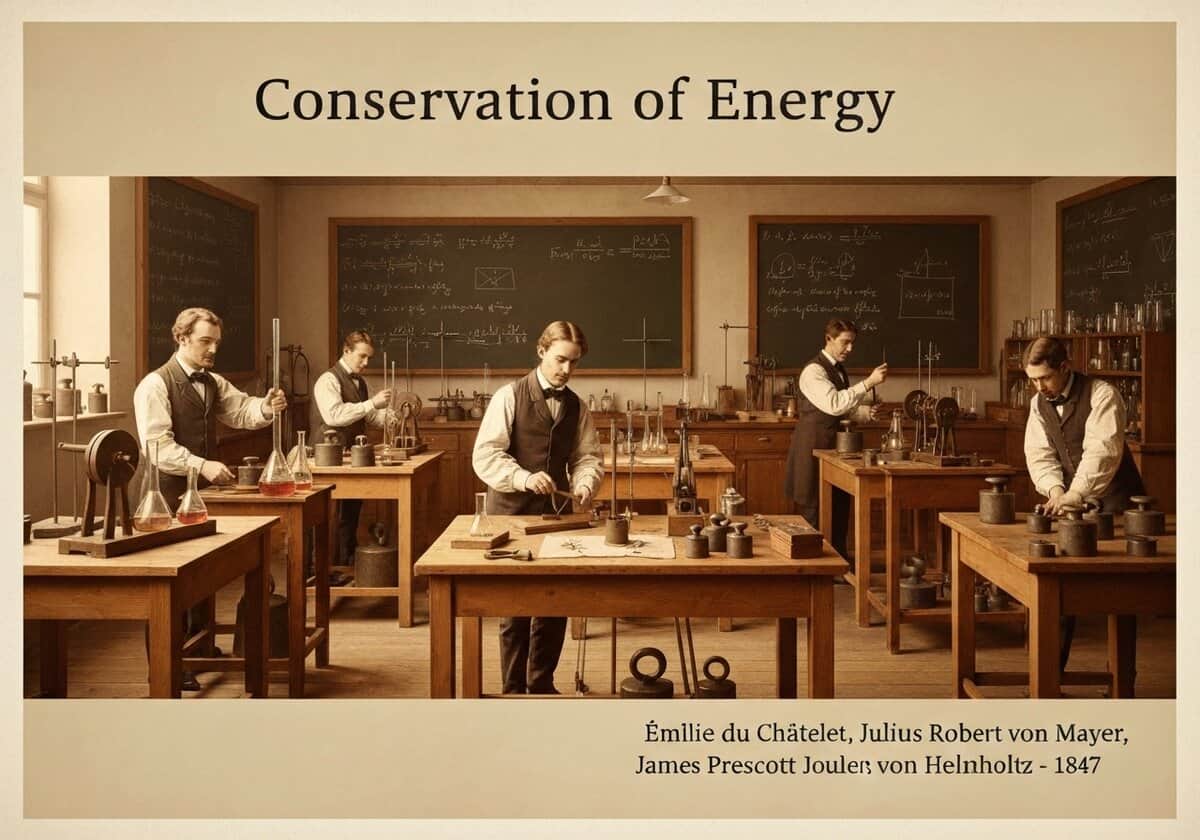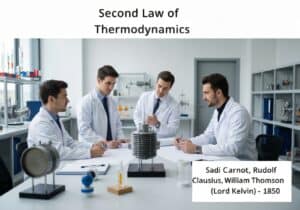Ein Grundprinzip, das besagt, dass die Gesamtenergie eines isolierten Systems über die Zeit konstant bleibt. Energie kann weder erzeugt noch zerstört werden, sondern nur von einer Form in eine andere umgewandelt werden, z. B. von potenzieller in kinetische Energie. In der klassischen Mechanik bleibt für Systeme mit ausschließlich konservativen Kräften die gesamte mechanische Energie [latex]E = T + V[/latex] erhalten.
The law of conservation of energy is one of the most fundamental and universally applicable principles in all of science. Its development spanned centuries, evolving from early ideas about motion into a precise mathematical statement in the 19th century that unified mechanics, heat, and chemistry.
In the context of classical mechanics, the principle is most clearly seen in systems subject only to conservative forces, such as gravity or the force from an ideal spring. A force is conservative if the work it does on an object moving between two points is independent of the path taken. For such forces, a potential energy function [latex]V[/latex] can be defined. The work-energy theorem states that the net work done on an object equals the change in its kinetic energy, [latex]W_{net} = \Delta T[/latex]. For conservative forces, this work can be expressed as the negative change in potential energy, [latex]W_{cons} = -\Delta V[/latex]. Combining these gives [latex]\Delta T = -\Delta V[/latex], or [latex]\Delta T + \Delta V = \Delta(T+V) = 0[/latex]. This shows that the total mechanical energy, [latex]E = T + V[/latex], is a constant of motion.
When non-conservative forces like friction are present, mechanical energy is not conserved; it is typically dissipated as heat. However, the total energy of the isolated system, including this thermal energy, is still conserved. This broader principle is the First Law of Thermodynamics.
In the 20th century, Emmy Noether’s theorem provided a deeper understanding of this law. It showed that the conservation of energy is a direct mathematical consequence of a fundamental symmetry of the universe: the fact that the laws of physics do not change over time (time-translation invariance).































